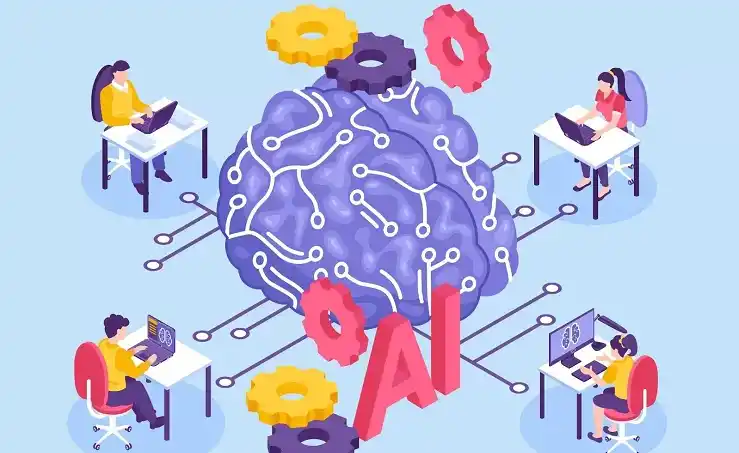The future of AI and machine learning in social media analytics holds immense potential to revolutionize how businesses interpret data and develop marketing strategies. As these technologies continue to evolve, they are expected to transform the social media landscape in several key ways:
1. Advanced Predictive Analytics
- Predicting Trends and Behavior: AI will be able to analyze massive amounts of historical and real-time data to predict future trends and user behavior. Machine learning models can forecast which types of content, products, or campaigns will perform well based on patterns, allowing marketers to stay ahead of trends.
- Personalization at Scale: AI will enable hyper-personalization by predicting what individual users want to see. By learning from past interactions, AI can tailor content, ads, and product recommendations to each user’s preferences, boosting engagement and conversion rates.
Impact: Marketers will be able to create more relevant, targeted campaigns, increasing their effectiveness and ROI.
2. Automated Insights and Reporting
- Real-Time Data Interpretation: AI-powered tools will increasingly automate the interpretation of social media data, offering real-time insights without human intervention. This will reduce the time needed for manual data analysis and allow marketers to make quick, data-driven decisions.
- Natural Language Processing (NLP): AI’s ability to understand and analyze text data through NLP will allow it to automatically summarize customer sentiment, detect sarcasm, and provide deeper insights into brand perception from millions of social media posts, reviews, and comments.
Impact: Marketers will have faster, more actionable insights into campaign performance, sentiment analysis, and brand health, enabling them to adapt strategies on the fly.
3. Enhanced Sentiment Analysis
- Emotion Detection: AI and machine learning models will advance beyond simple positive, neutral, or negative sentiment analysis to detect more nuanced emotions such as frustration, excitement, or concern. This will help brands understand how their audiences truly feel and why.
- Contextual Understanding: AI will improve in understanding the context in which a comment or post is made, reducing misinterpretations and providing more accurate insights into customer opinions and reactions.
Impact: Brands will gain a deeper understanding of customer emotions and motivations, allowing them to craft more empathetic and emotionally resonant marketing strategies.
4. Social Media Listening and Customer Interaction
- Proactive Customer Engagement: AI-driven chatbots and virtual assistants will continue to improve in their ability to engage with users on social media, answering questions, solving issues, and offering product recommendations in real time. Machine learning will enable these systems to become smarter with every interaction.
- Social Media Listening: AI will enhance social listening tools, allowing brands to automatically track mentions, keywords, and trends across platforms. These systems will identify emerging conversations, giving brands the opportunity to engage in real time or even preempt potential crises.
Impact: Automated, intelligent customer interactions will improve customer service and brand responsiveness, while real-time social listening will enhance engagement and crisis management.
5. Visual Recognition and Analysis
- Image and Video Analysis: Machine learning models are getting better at recognizing objects, people, and even emotions in images and videos. This capability will allow brands to analyze user-generated content, monitor brand logos, and understand visual engagement trends.
- Automated Content Tagging: AI will automatically tag and categorize vast amounts of visual content, making it easier for marketers to track performance and audience preferences related to imagery and video content.
Impact: Visual content, which is critical for social media, will become more analyzable and trackable, allowing brands to optimize visual strategies based on real user engagement with photos and videos.
6. Optimized Advertising and Targeting
- AI-Driven Ad Campaigns: Machine learning will allow for real-time optimization of social media ads. AI will monitor ad performance and adjust targeting, budgeting, and creative elements to ensure maximum ROI, minimizing wasted spend.
- Micro-Segmentation: AI will refine audience segmentation to an unprecedented level, creating micro-segments based on detailed user behavior, interests, and preferences. This will allow for highly targeted and personalized ad campaigns.
Impact: Brands will be able to run smarter, more cost-efficient ad campaigns that deliver the right message to the right person at the right time.
7. Automated Content Creation and Curation
- AI-Generated Content: With advancements in natural language generation and creative AI, it’s becoming possible for AI to automatically create social media content, such as blog posts, captions, and even videos. These systems will be able to generate content that aligns with a brand’s tone and style, based on previous successful posts.
- Content Curation: AI will help marketers curate the most relevant content for their audiences by analyzing user behavior and identifying trending topics, ensuring brands post content that resonates with their followers.
Impact: AI will streamline the content creation process, allowing marketers to focus more on strategy and less on manual content development.
8. Influencer Marketing and Fraud Detection
- Influencer Analysis: AI will revolutionize influencer marketing by analyzing influencers’ followers, engagement rates, and audience authenticity. Machine learning models will be able to detect fake followers, inflated engagement, and fraudulent activity, helping brands partner with genuine influencers who drive real results.
- Predicting Influencer Performance: AI can predict which influencers will best align with a brand’s goals, based on data-driven insights into their past performance and audience demographics.
Impact: Brands will be able to invest in more effective influencer partnerships, reducing the risk of fraud and ensuring better ROI from influencer campaigns.
9. Data Privacy and Ethical AI
- Ethical Data Use: As AI and machine learning continue to integrate into social media analytics, ethical considerations and privacy regulations will play a larger role. Companies will need to balance advanced data insights with responsible data usage to maintain customer trust and comply with data protection laws like GDPR.
- Transparent Algorithms: There will be increased pressure on companies to use AI algorithms transparently, ensuring that users understand how their data is being used and analyzed.
Impact: Brands will need to be mindful of privacy concerns while leveraging AI, building trust with their audience through ethical and transparent practices.
Conclusion
AI and machine learning will significantly transform social media analytics by making data interpretation more efficient, accurate, and actionable. Marketers will be able to create more personalized, data-driven campaigns that are tailored to user behavior and preferences, all while automating routine tasks. This revolution will lead to smarter marketing strategies, better customer experiences, and stronger business outcomes, making AI an essential tool in the future of social media marketing.


